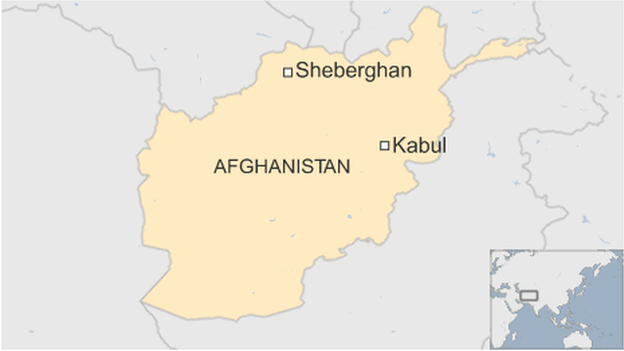Afghan fuel station cost $43m, US military report says
- Published

The report described the cost of construction of the station as "gratuitous and extreme"
The US Department of Defense has spent $43m (£28m) on a vehicle fuelling station in Afghanistan, according to a recently published oversight report.
The project was intended to show how Afghanistan's natural gas reserves could be used as an alternative to expensive petroleum imports.
However, it cost more than 140 times that of a similar project in neighbouring Pakistan.
The report called the spending "gratuitous and extreme".
The highly critical report was published by the Special Inspector General for Afghanistan Reconstruction, a group overseeing the use of the approximately $110bn the US has spent in Afghanistan since 2002.
"It's an outrageous waste of money that raises suspicions that there is something more there than just stupidity. There may be fraud. There may be corruption," said John Sopko, special inspector general for Afghanistan Reconstruction.

The station, which was built in the city of Sheberghan, was meant to be the first ever natural gas filling station in Afghanistan.
It was meant to determine whether Afghanistan had an economic interest in developing a natural gas industry.
The station was constructed at the behest of a US military task force originally created to help spur economic development in Iraq after the US invasion that was later replicated in Afghanistan in 2009.
The cost of $43m is far larger than the estimated cost of building natural gas stations in other countries - which ranges from $200,000 to $500,000.
By comparison, a similar project in Pakistan was estimated to cost only $306,000.
'No explanation'
The report, external acknowledged that building the facility in war-torn Afghanistan would incur additional costs not seen elsewhere.
However it said the US military was "unable to provide an explanation for the high cost of the project or to answer any other questions concerning its planning, implementation, or outcome".
In a email to the BBC, US Army Lieutenant Colonel Joe Sowers said that the US military had fully co-operated with the investigation.
According to Afghan government documents obtained by the oversight group, a business license granted to a company operating the filling station expired in 2014, and has not been renewed.
Mr Sopko said he intended to continue investigating to see whether any conduct was "criminal in nature".